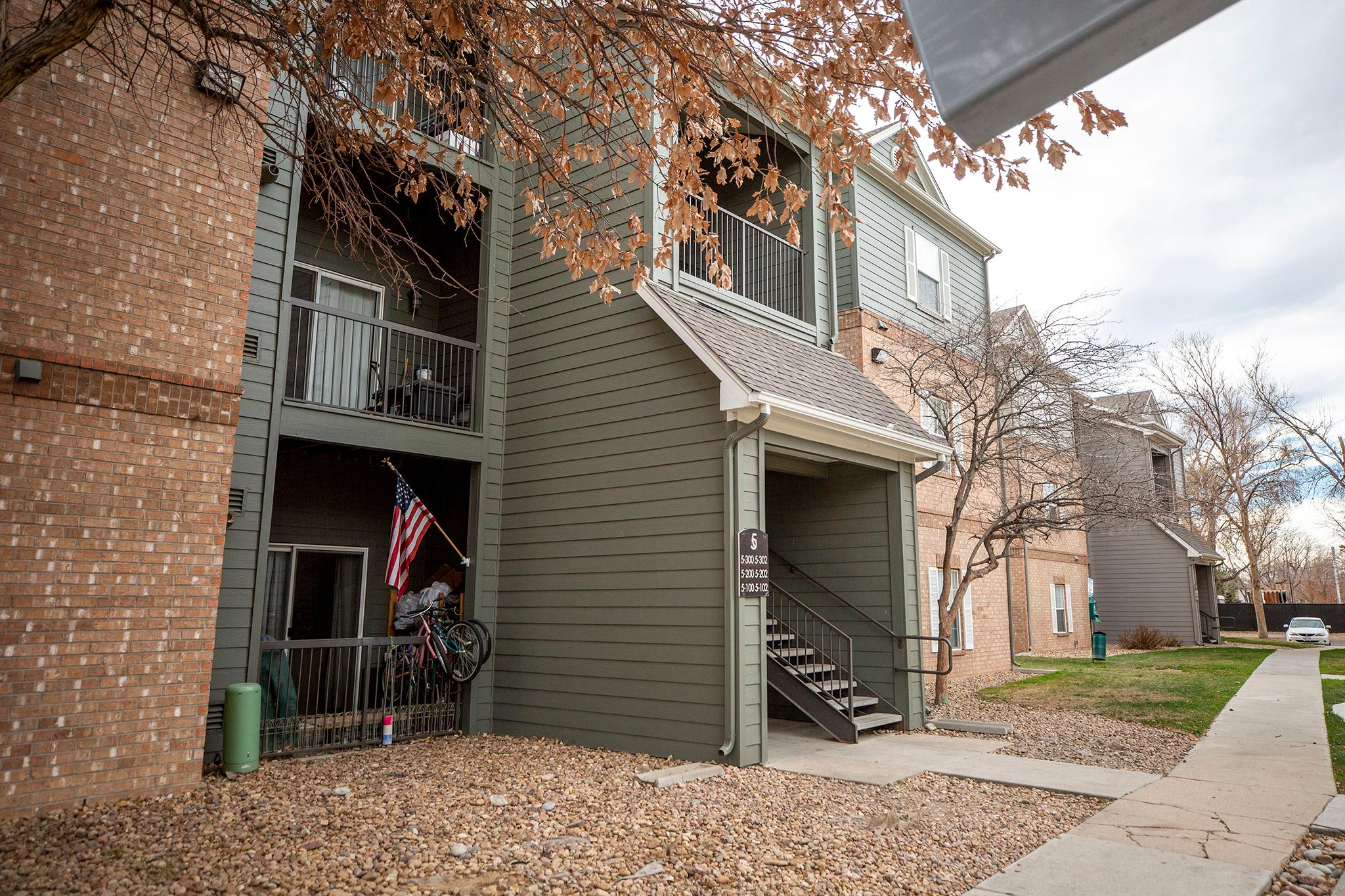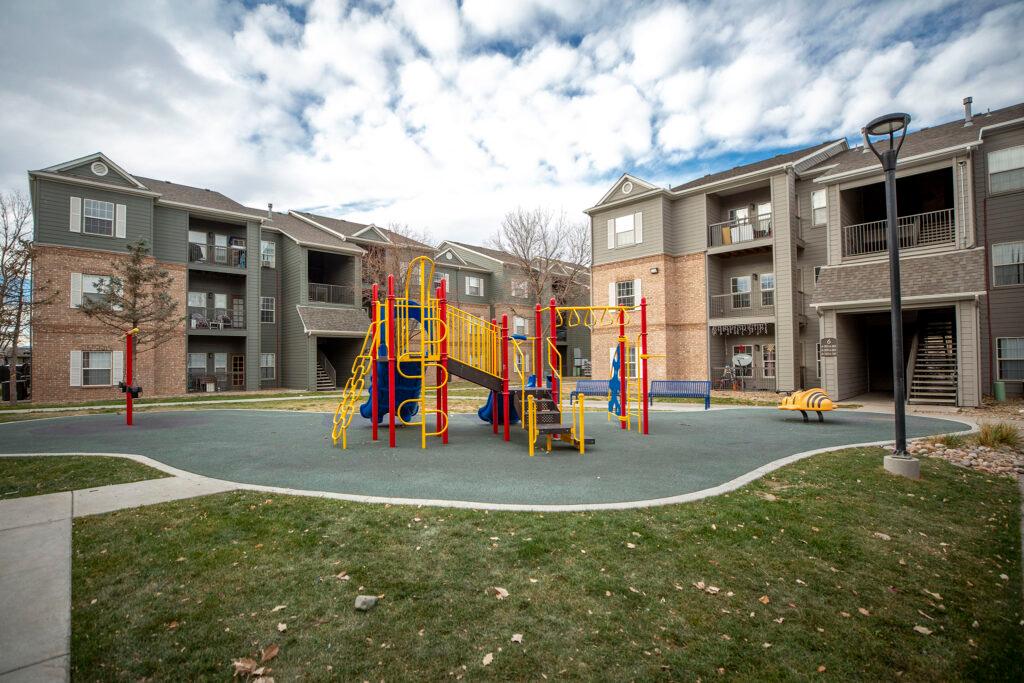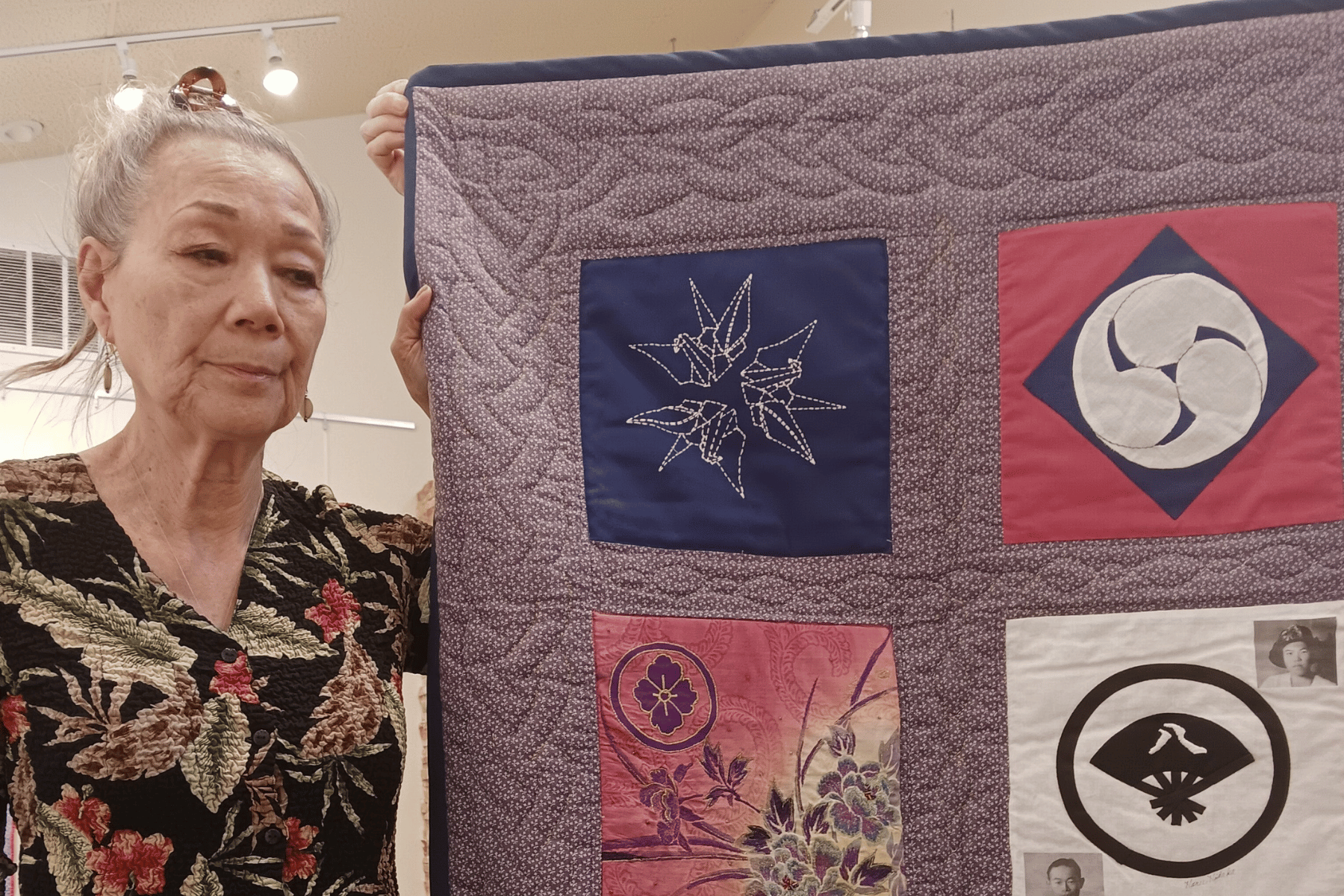
This is part of a series by Colorado Public Radio News about housing instability in Colorado.
The call came in April 2020. Jessica answered. On the other end was a manager of the apartment complex where she lives just north of Denver.
“You have to vacate the apartment,” Jessica recalls the manager saying. “Because you’re either late paying rent or you don’t pay the full amount.”
Jessica said she started to cry.
“But how?” Jessica said, recalling the conversation. “I’m pregnant. I can’t find a job. We’re struggling.”
And a pandemic was unfolding around her. Jessica was already struggling to pay for food for her two boys and herself. She feared she was about to lose her home as she was expecting her third child.
She thinks now, more than a year later, that the reason she still has a roof over her head is because maybe her tears moved the management company. A few days after that call, another one came, telling her she could stay.
Life hasn’t gotten any easier since then. Jessica lost her job as a nanny and is separated from her partner. And she’s three months behind on rent. One thing she has going for at the moment is the apartment complex where she lives hasn’t filed an eviction notice against her.
Still, Jessica finds herself facing a problem that’s becoming more common for many Coloradans who are struggling to pay for housing as they try to gain financial footing in a continuing pandemic. Evictions, once paused by federal and state restrictions due to the health crisis, are ticking back up leaving people like Jessica one step away from homelessness.
For Jessica, who is a native of Chihuahua in Mexico, there’s an added element: she’s undocumented. CPR News agreed to use only her first name. She was ineligible to receive any of the federal benefits citizens and residents with legal status have gotten during the past year and a half.
On a recent Monday morning, Jessica was visited by Brenda, a former resident of the same apartment complex. Brenda, a mother of three who is also from Mexico, is also undocumented and asked that CPR News use only her first name.
The two mothers sat in the kitchen of Jessica’s modest two-bedroom apartment. Brenda was occasionally interrupted by the voice of her 2-year old son, who seemed to be trying to say his first words.
Brenda, who worked as a housekeeper, had also fallen behind on rent this year, though she was able to use her savings to make ends meet for a while.
“I never stopped paying,” Brenda said. That was until her roommate moved out earlier this year, leaving her to pay the full monthly amount by herself.
She reached out to management in the spring about her options. But she was told there weren’t any resources to help her pay rent. A few days later, she said she got an eviction notice, requiring her to go to court.
Rather than try and fight the eviction any further, Brenda decided to move out.
"It was too much rent for me to pay by myself," she said.

Needing help but not knowing where to ask for it
Though there are some resources, like state-funded rental relief, available to families like Jessica’s and Brenda’s, there’s both a language barrier and a technological wall that can keep them from accessing them.
That’s where a group like United for A New Economy (UNE), based in Commerce City, steps in. Both Brenda and Jessica learned about UNE from a flyer that was left at their doors.
Allex Luna, the organizing director for UNE, said that he’s helping the families through the complicated rental relief processes. To apply, families need to produce and upload documents that detail past rental history, employment history and a ledger that details the person’s rent history where they live.
The rent relief comes from the state’s Emergency Rental Assistance Program.
The application process puts “all the responsibilities on folks who in most cases that we are working with are monolingual Spanish-speakers who aren’t technologically savvy,” Luna said. Brenda and Jessica only speak Spanish.
He added that most of the families UNE is working with at this complex, including Jessica, are on a monthly arrangement without a lease.
UNE is educating people about their tenant rights under state law, including a new one that gives tenants more leeway to pay back due rent, Luna said.
Iris, another resident who lives on the first floor of the complex, has also taken advantage of that help. Iris is also undocumented and asked the CPR News use only her first name.
She works at a shipping warehouse, a job she started in September after giving birth to her now 4-month-old son, Aziel.
She used to work at a daycare in Thornton, but she left after getting COVID-19 there last year. She was pregnant at the time, and her symptoms were mild.
Instead what hit harder were the financial pressures of the pandemic. Working limited hours at the warehouse has her two months behind on rent. Her mother, who lives with her, helps pay for other bills, but they continue to pile up.
She said she worries now about where she, Aziel and her 2-year-old daughter, Dalary, would go if they don’t get the rent assistance she applied for with the help of Luna and UNE.
“We never knew we could get the help, since we’re not from here,” Iris said. She said it isn’t easy for her because she feels embarrassed asking for this kind of help.
UNE Executive Director Carmen Medrano said the organization doesn’t keep track of how many undocumented families or people they serve, but lacking legal status or having a relative who does is a common situation for many of the residents they’re working with at the apartment complex.
And families across Adams County — mainly in Aurora, Commerce City and Westminster — reach out for help. For many, Medrano said, the situation is often that the parents or one of the parents may be undocumented, but the children are U.S. citizens.
A tough time for Latino or Hispanic and immigrant families in Colorado
All three women CPR News spoke to represent a reality for some Latinos in Colorado: Making ends meet is getting harder, despite so-called economic recovery in the state. And being undocumented makes it worse.
Industries that relied heavily on immigrant labor were hit the hardest by the pandemic — but there wasn’t a lot of government support for undocumented people who lost their jobs.
There may be about 100,000 undocumented workers in Colorado, according to the progressive-leaning Colorado Fiscal Institute. Many pay taxes and fees — and many of their employers pay into the unemployment program on their behalf. By one estimate, Colorado employers pay more than $10 million a year in unemployment premiums on undocumented workers’ wages.
But those workers don’t qualify to receive those state or federal unemployment benefits — or most other government assistance. The state launched a rental assistance fund over the summer that was available to people regardless of legal status. But that assistance adds up to a fraction of what unemployment benefits would have paid.
A survey released last month by the Colorado Health Foundation paints a dire picture.
The survey of 2,493 people included 663 Hispanics. It found financial insecurity is impacting Hispanic families more than any other racial or ethnic group, meaning they were the group most likely to be worried about having food, paying for rent or a mortgage, and keeping health insurance.
Latinos make up roughly 22 percent of the state’s 5.8 million residents.
The survey also found nearly a third of respondents worried about losing their home in the next year.
Right now, Jessica hopes she won’t be one of those people.
She said she has a month-to-month arrangement with the apartment complex. What she doesn’t have is a full-time job. She used to work as a nanny for two kids once or twice a week, but Jessica said that gig made just enough income for her to buy food for her kids.
“I do get nervous,” Jessica said. “I don’t know what I will do if they ask me to leave the apartment.”
And if this is the home she wants to stay in, she’ll have to pay more going forward because the apartment complex recently raised her rent — the second time that’s happened since the pandemic began.
CPR's Obed Manuel and Andrew Kenney contributed to this story.
- He bought land in Park County before he could afford to build a home. So, he dug a hole there instead and lives in it.
- Older women experiencing homelessness in Grand Junction find a place of peace and progress
- For people sleeping in their cars, parking lots serve as a safe place to get back on their feet
- For one Colorado trans woman, long-term care was her only option for housing — but getting in was an eight-month struggle
- Inside two Colorado mobile-home communities fighting to avoid corporate takeovers — with very different results
- As pandemic funding for Greeley shelter dries up, residents face housing instability and a return to homelessness
- Undocumented families in metro Denver face added barriers as they struggle to keep their housing during the pandemic
- Colorado’s housing crisis explained. CPR News is exploring the issue by meeting the people living through it









